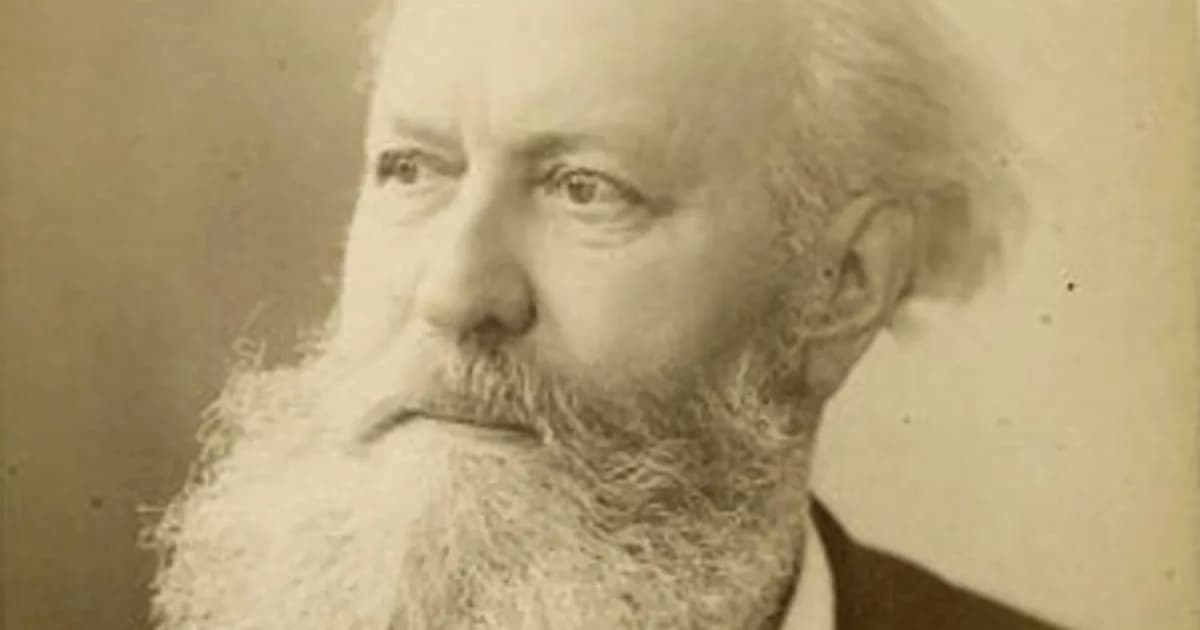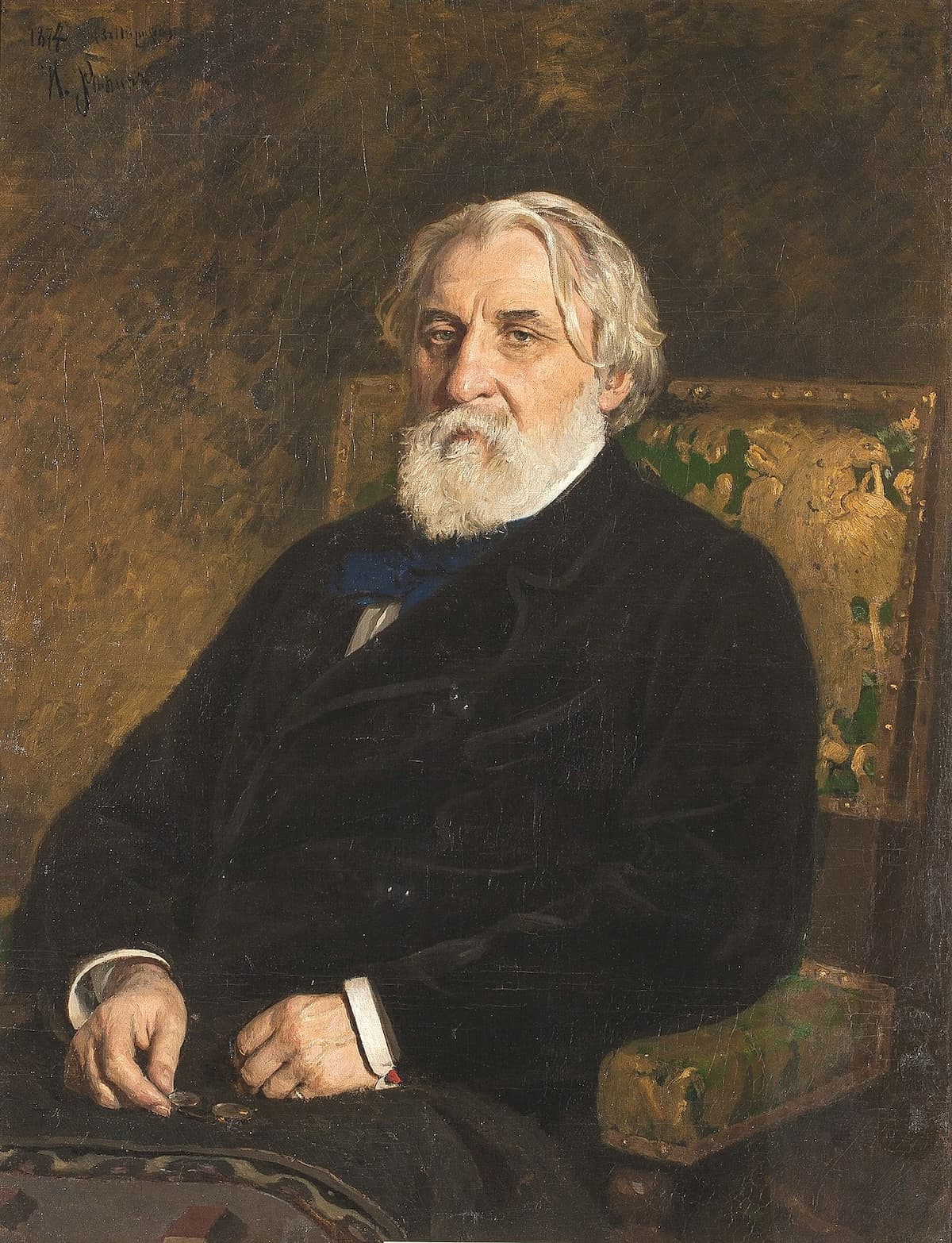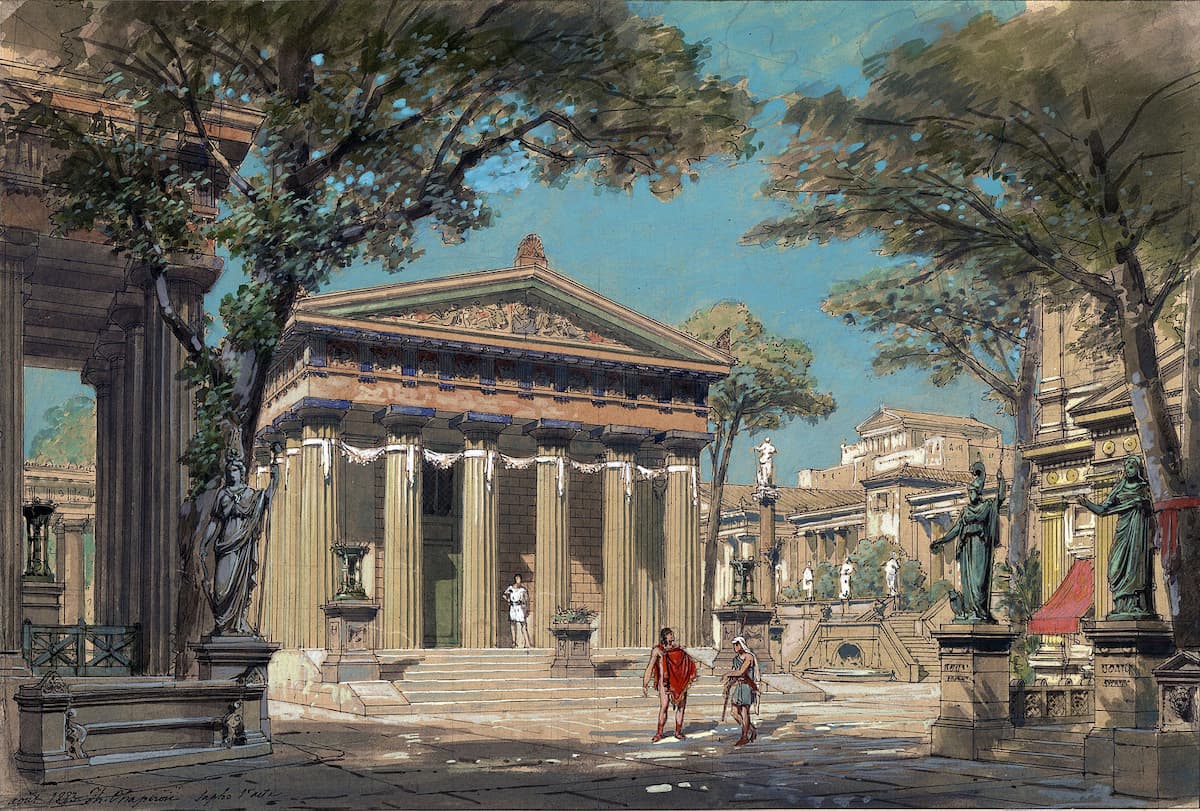After winning the prestigious Prix de Rome, the young Charles Gounod (1818-1893) arrived in the Eternal City of Rome in 1840. After experiencing a spell of melancholy and homesickness, which he described “this kind of shroud in which I was wrapped,” he started to take long walks. He also attended musical soirées at the home of the painter Jean-Dominique Ingres—where he met Fanny Hensel—and read Goethe’s Faust and the poems of Lamartine. He was particularly inspired by an extract from Lamartine‘s Méditations poétiques, and decided to set “Evening” to music.

Charles Gounod © oxfordsong.org
The evening brings silence.
Seated on these lonely rocks,
I follow in the vacant air
The chariot of approaching night.
Venus rises above the horizon;
At my feet the star of love
With her mysterious light
Whitens the carpets of lawn.
Suddenly from the heavens
A beam from the evening star,
Gliding across my solemn face,
Softly comes to touch my eyes.
Sweet reflection of a ball of flame,
Charming ray, what is your with?
Are you come to my despondent heart
To illuminate my soul?
Are you come down to show me
The divine mystery of the world?
Those secrets hidden in the sphere
To which day will recall you?
Are you come to disclose the future
To this tired heart which implores you?
Divine gleam, are you the dawn
Of the day that has to end?
Charles Gounod: “Le Soir” (José Carreras, tenor; Lorenzo Bavaj, piano)

Turgenev, depicted by Ilya Repin (1874) © Wikipedia
With “Le soir,” Gounod crafted one of his most memorable beautiful melodies. Capturing all the voluptuousness and languid sweetness of Lamartine’s poem, Gounod raises the artistic aims of the contemporary French romance to the level of the lied by skillfully employing a highly developed chromaticism together with great vocal lyricism for expressive effect. In short, Gounod had composed a winner. Upon his return to Paris, Gounod was introduced to Pauline Viardot by the Russian author Ivan Turgenev as follows: “What Gounod lacks somewhat is a brilliant and popular side. His music is like a temple: it is not open to all… Yet among that mass of talented composers who are witty in a vulgar sort of way, intelligible not because of their clarity but because of their triviality, the appearance of a musical personality such as Gounod’s is so rare that one cannot welcome him heartily enough.” Viardot extended an invitation to the young composer to play several of his works for her, including “Le Soir,” and she was so impressed that she asked him on the spot why he hadn’t yet attempted opera. As such, Gounod embarked on his first opera Sapho, and Viardot invited him to use her country estate outside Paris as his writing studio. In an effort to be more “popular,” Gounod uses the smoky and sultry melody of “Le Soir” at the end of the first act in Sapho’s aria “Héro sur la tour solitaire.”
Charles Gounod: Sapho
Sapho was first given at the Paris Opera on 16 April 1851, and the opera did not convince the public. Much of the music was unusual for its time by paying particular attention to the psychological drama, omitting the diverse and historical subject matters of grand opera. Hector Berlioz, however, praised the music and the subject of the opera. “It seems,” he writes, “I have the misfortune to be neither of my time nor of my country. For me, Sapho’s unhappy love…the dreams of liberty that culminate in exile, the Olympic festival and the worship of art by an entire people… all this, I confess, touches me to the heart, exalts the mind, excites and disturbs and enchants me more than I can say.” Professional endorsement, it seems, was still not enough to sway the audience. Gounod made several revisions, but the work never really gained traction. And the marvelous “Le Soir” tune was still not properly appreciated, at least according to Gounod. As such he fashioned an arrangement that utilized the rich and velvety timbre of the horn.
Charles Gounod: “Le Soir” (arr. for voice, horn and piano) (Annette Betanski, soprano; James Sommerville, horn; Rena Sharon, piano)

Set design by Philippe Chaperon for Act 1 of the opera Sapho by Charles Gounod for the 1884 production at the Palais Garnier in Paris © Wikipedia
Ten years had passed since the premiere of Sapho in 1851, and Paris was in the clutches of
Mendelssohn’s “Lieder ohne Worte.” “Romances sans paroles” were composed and performed by every pianist of rank and name active in Paris. And Gounod happily participated in 1861 by composing his Trois Romances sans paroles. The first two “Lieder” imitate Schubert’s character portrayals, but in the final number of the set we find an old friend. Twenty years removed from the original setting, “Le Soir” makes a somber and somewhat enigmatic return. Skillfully adapted and harmonically enriched, “Le Soir” is as close as Gounod came to his hero Mendelssohn.
For more of the best in classical music, sign up for our E-Newsletter
Charles Gounod: 3 Romances sans paroles, No. 3 “Le soir” (Barbara Moser, piano)
